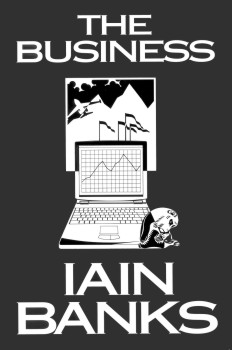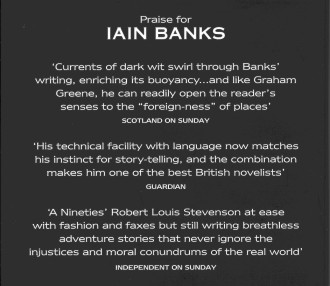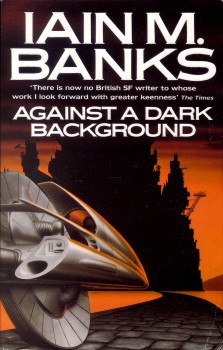The Business:
![]()
![]()
![]()
 |
The very name of this book deserves its own mention. You think 'huh', Banks has produced a book called 'The Business'. Interesting.
You then look at the inside cover, and read the immortal words...
'To take control, she [Kate] has to do The Business.'
A blurb like that is good enough for me to buy any book.
The Business is, well, a science fiction book set in the present day. Sci-fi fans will love, and emphasise with the book. What's it about?
Well, the main character, Kate, is a member of The Business, an immensely powerful (yet democratic) commercial organisation that has been in existence for over 2000 years and has any number of incredibly cool things in its possession. It's a sci-fi fan's heaven. The Business even wants to 'purchase' a state in order to acquire a seat at the United Nations, which is a lot of what the book is about.
So what's the rest of the book about? It's about Kate, who is 38 and lusts after another woman's husband. Kate's job is to keep abreast of current technological developments, which allows Banks to mention lots of nice up-to-date gadgets.
The thing is, is that the book can't decide what, exactly, it is about. It's not just about getting a seat at the UN, and it's not just about Kate. OK, I know there are such things as subplots and character development, but the problem with The Business is that it doesn't seem to go anywhere. The Business isn't about anything.
You get to the end of the book, and a lot of admittedly world-changing and Kate-changing things have gone on. And you think, 'Huh.' And that's it. There's a sense of 'what gives?' when you reach the end, as if nothing mattered. And it didn't. You don't emphasise with Kate, she's just some woman.
It'd be very easy to write off the book as a failure, but despite the fact that it doesn't go anywhere and it's not about anything, it's well worth buying, at least when it's in paperback. There's a great amount of well written text in it, and some wonderful dialogue. The start of the book got me going quite well. One of the 'laugh out loud' sections of the book was a discussion by a billionaire in the Business about whether it'd be possible to use tens of thousands of people to hold up coloured pieces of paper in formations, so from an airplane you'd have a moving image. Like at football stadiums, and the Olypmics.
Iain Banks is a great writer, a conclusion you can reach just by reading his Culture books. He still writes well in The Business, but he can't decide whether it's a science fiction book, or a book about Kate.
 |
I was inclined to give this book a Three Star rating, but it just doesn't hack it. Sorry, but when you compare it to his better books such as The Player of Games and Against a Dark Background, you realise you preferred reading his other books.
Don't get the idea that Banks isn't good at non-science fiction books. That's not true. His books such as Inversions and The Wasp Factory have received widespread critical acclaim, so if you want to try some of Banks' non-sci-fi novels, try them.
